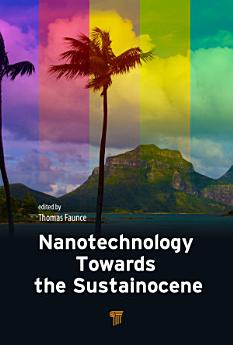Nanotechnology Toward the Sustainocene
Thomas Alured Faunce
ธ.ค. 2014 · CRC Press
eBook
358
หน้า
family_home
มีสิทธิ์
info
reportคะแนนและรีวิวไม่ได้รับการตรวจสอบยืนยัน ดูข้อมูลเพิ่มเติม
เกี่ยวกับ eBook เล่มนี้
While the sustainability of our world is being endangered or destroyed by the misguided activities of artificial human entities, real people have begun to expand their moral sympathies sufficiently to prioritize protecting our world's interests. They have developed a new technology-nanotechnology-that has the potential to advance human society towa
เกี่ยวกับผู้แต่ง
Thomas A. Faunce is a professor at the Australian National University (ANU), holding joint positions at the ANU College of Medicine, Biology and Environment and the ANU College of Law, and an Australian Research Council Future Fellow. He is the foremost scholar internationally working on governance issues related to the globalization of artificial photosynthesis. He has published 4 books, over 20 book chapters, and over 100 articles in refereed journals in the field of health, technology, and renewable energy governance.
ให้คะแนน eBook นี้
แสดงความเห็นของคุณให้เรารับรู้
ข้อมูลในการอ่าน
สมาร์ทโฟนและแท็บเล็ต
ติดตั้งแอป Google Play Books สำหรับ Android และ iPad/iPhone แอปจะซิงค์โดยอัตโนมัติกับบัญชีของคุณ และช่วยให้คุณอ่านแบบออนไลน์หรือออฟไลน์ได้ทุกที่
แล็ปท็อปและคอมพิวเตอร์
คุณฟังหนังสือเสียงที่ซื้อจาก Google Play โดยใช้เว็บเบราว์เซอร์ในคอมพิวเตอร์ได้
eReader และอุปกรณ์อื่นๆ
หากต้องการอ่านบนอุปกรณ์ e-ink เช่น Kobo eReader คุณจะต้องดาวน์โหลดและโอนไฟล์ไปยังอุปกรณ์ของคุณ โปรดทำตามวิธีการอย่างละเอียดในศูนย์ช่วยเหลือเพื่อโอนไฟล์ไปยัง eReader ที่รองรับ




